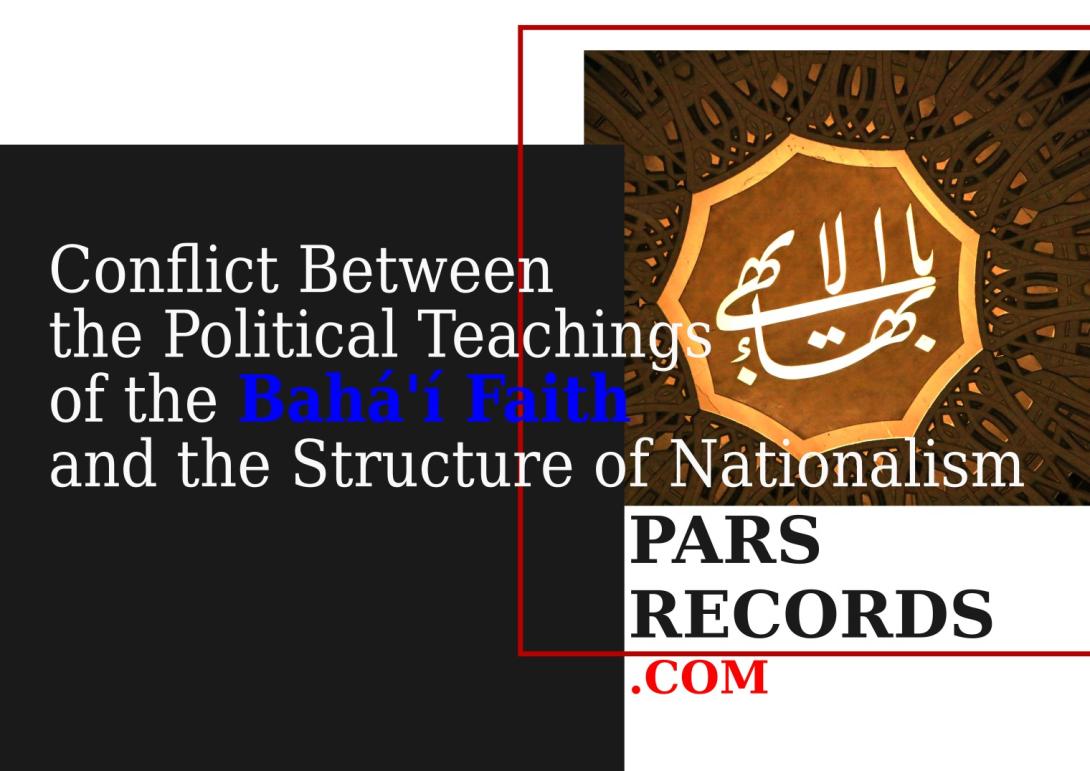A Document-Based and Comparative Analysis
The Bahá'í Faith, as a modern religious movement that emerged in the 19th century, is characterized by universalist, transnational, and pacifist ideals. These teachings conflict with the traditional structures of nationalism, which are grounded in national identity, territorial integrity, and cultural unity. This paper, through a document-based and comparative analysis of Bahá'í texts, examines the ideological principles of the Bahá'í Faith in comparison with the core elements of nationalism. The findings reveal that the Bahá'í emphasis on the "unity of humankind," the negation of national borders, and the promotion of a global government, are fundamentally at odds with the modern nationalist discourse.
Introduction
Over the past few centuries, two major and influential discourses have shaped the intellectual and political landscapes of developing societies: nationalism and emerging globalist religions. Nationalism, particularly in the 19th and 20th centuries, served as a driving force behind independence movements and national identity formation. In contrast, the Bahá'í Faith promotes concepts such as "the unity of mankind," a "universal language," and the establishment of a global government — ideas that often stand in opposition to the spirit of nationalism.
This article aims to examine the Bahá'í teachings concerning governance, identity, and society through documentary analysis and compare them with the fundamental principles of nationalism, particularly within the context of Iran and the Middle East.
1. Theoretical Concepts
1.1 Nationalism
Nationalism is based on four fundamental principles:
- Shared ethnic or linguistic identity
- Territorial integrity
- National sovereignty
- Loyalty to the nation above other forms of allegiance (e.g., religion, class)
These principles directly serve the political independence and social cohesion of nations.
1.2 Core Teachings of the Bahá'í Faith
According to the official Bahá'í texts, including the writings of Bahá'u'lláh and ʻAbdu'l-Bahá, the following principles are central:
- The unity of humankind
- Rejection of racial, religious, and national prejudices
- A universal auxiliary language and script
- Establishment of a just global government
- Primacy of "human unity" over national distinctions
2. Conceptual and Structural Conflicts
2.1 Rejection of National Borders and Local Identity
The Bahá'í Faith views nations as "parts of a whole" and regards national borders as temporary constructs and potential obstacles to global unity. This stands in contrast to nationalism, which considers borders as foundations of national identity and security.
2.2 Global Government vs. National Sovereignty
Bahá'í writings support the idea of a global government with unified legislative bodies. Such a structure potentially undermines the concept of national sovereignty and deviates from nationalist principles.
2.3 Universal Language and Culture
The Bahá'í proposal for adopting a universal language (such as Esperanto or another agreed-upon tongue) as a tool for unity may diminish the status of national languages, which are often carriers of local culture and identity.
3. Documentary Analysis
Referring to core Bahá'í texts, including the Kitáb-i-Aqdas, ʻAbdu'l-Bahá’s Talks, and statements by the Universal House of Justice, the following points emerge:
-
In the Kitáb-i-Aqdas, it is written:
"Ye are all the fruits of one tree and the leaves of one branch."
- ʻAbdu'l-Bahá, in his talks in the West (especially in The Promulgation of Universal Peace), emphasized the need to abandon "narrow patriotism" and regard humanity as one family.
- The Universal House of Justice, in its official statements, insists that "nationalist ideologies" must give way to international cooperation and global solidarity.
These documents clearly indicate that the Bahá'í Faith opposes any form of national superiority, ethnic prejudice, or extreme reliance on national identity.
4. Socio-Political Implications of This Conflict
- Divergence from Nationalist-Oriented Policymaking: In countries with strong nationalist discourse, Bahá'í teachings may be perceived as undermining national cohesion.
- Conflict with Nationalist Ideologies: In many Middle Eastern nations, nationalism has served as a tool against colonialism and Western influence. In contrast, the Bahá'í Faith, due to its global orientation, is sometimes perceived as a "non-native" or foreign movement.
5. Conclusion
Through a documentary and comparative analysis of Bahá'í teachings and the foundations of nationalism, it becomes evident that a fundamental conflict exists between these two worldviews. Although the Bahá'í teachings present themselves under the banner of peace, unity, and international cooperation, they are inherently incompatible with nationalist structures based on sovereignty, borders, and particular cultural-historical identities.
This tension can, especially in societies highly sensitive to national identity and territorial integrity, lead to misunderstandings and, in some cases, political and cultural confrontation.
References
- Bahá’u’lláh, Kitáb-i-Aqdas
- ʻAbdu’l-Bahá, The Promulgation of Universal Peace
- Messages of the Universal House of Justice, Haifa Archives
- Anderson, Benedict. Imagined Communities, 1983
- Gellner, Ernest. Nations and Nationalism, 1983
- Smith, Peter. The Bábí and Baháʼí Religions: From Messianic Shiʻism to a World Religion, Cambridge University Press, 1987
PARSRECORDS.COM


Comments